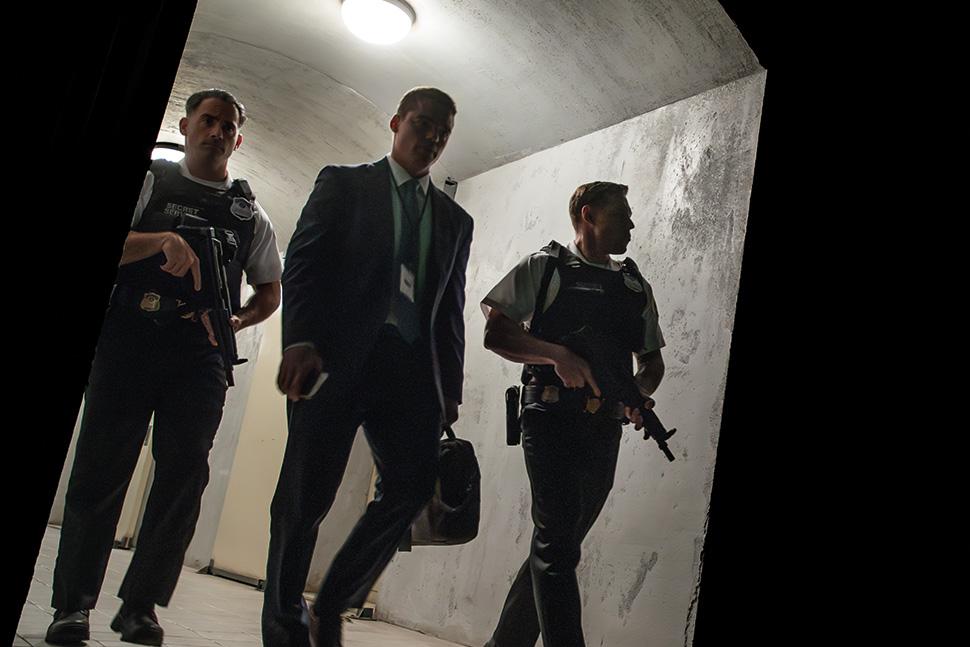Venice Film Festival 2025, Review: A House of Dynamite
Discover A House of Dynamite, the film in competition at the Venice Film Festival

What would happen if a nuclear missile were launched toward the United States? This is the question Kathryn Bigelow explores in A House of Dynamite, alternating between three perspectives. The first belongs to Captain Olivia Walker (Rebecca Ferguson), who has a husband and daughter, and finds herself facing nineteen minutes in the White House situation room before the missile strikes Chicago. Her decisions are crucial in the opening minutes but diminish as impact approaches: time passes, and the missile sent to intercept the nuclear weapon fails to hit its target. After those fateful minutes—while Olivia futilely attempts to warn her husband to leave the city—the screen goes black.
The second perspective belongs to Jake Baerington (Gabriel
Basso), Deputy National Security Advisor: his wife is pregnant, and he
unexpectedly confronts the situation. This viewpoint appears more fragmented
than the previous one, failing to deliver the same sense of completeness. The
third focus shifts to the President of the United States, attending a gathering
of young basketball players. He's suddenly whisked away due to the DEFCON 2 alert,
the second-highest level of military readiness, indicating an imminent attack
requiring increased armed forces preparedness. The President confronts an
advisor who opens the black book of nuclear security outlining the subsequent
phases. "I don't even know what that is," the President responds, in
what is perhaps the most fully realized episode. Indeed, the
adversaries—possibly Chinese or Russian—might deploy additional weapons, and
after the initial attack, the President must decide whether to initiate nuclear
war.
A House of Dynamite manages to calibrate its directorial
timing precisely, showing within those nineteen minutes what would truly
unfold. The details help capture the anxiety, from cell phones left behind
before entering the situation room to the precision in analyzing the missile
operation. Perhaps the redundancy of episodes leads to narrative fatigue, but
given the situation into which we're thrust, the tension remains constant.
Certainly, the characters' emotions don't bleed through as they must resolve
the situation within those fateful nineteen minutes, after which Chicago's ten
million inhabitants—the target city—would be wiped out. But emotionality has
never been Bigelow's forte; she maps her territory more through details rather
than the broader vision.
© All rights reserved
You Might Be Interested

Review of The Housemaid: Sydney Sweeney stars in new thriller
The Housemaid boasts shocking twists under a poker face, but shows its’ cards too early

Avatar: Fire and Ash review: James Cameron is back for box-office blood
The Oscar-winning filmmaker’s latest wrestles between mesmerizing optics and deep storytelling, tiring itself out.

Zootopia 2 review: Disney Animation’s sequel pushes visual boundaries
Proving the first film was no one-trick pony, Disney grabs the bull by the horns for a second amusing animal adventure
-Bufo-(credit)-Max-Smeds.jpg)
Review of Shadowland, the documentary about Richard Stanley
Directed by Otso Tiainen, in competition at the Torino Film Festival

Hamnet review: Metamorphosis in the life of Shakespeare, with Paul Mescal, Jessie Buckley
To be or not to be; director Chloé Zhao answers yes with the story that conceived Shakespeare's seminal Hamlet

Movie review Running Man
The film is a remake of the 1980s cult classic starring Schwarzenegger.

Now You See Me: Now You Don’t; The series’ latest struggles to spellbind
The next stage of the magical mavericks leans on humdrum hocus-pocus to pull Rabbit out a hat at the box-office

Predator: Badlands reshapes the genre classic in the new movie
A new angle on the unearthly huntsman hopes audiences “Get to the choppa!” and take it straight to the theatre


